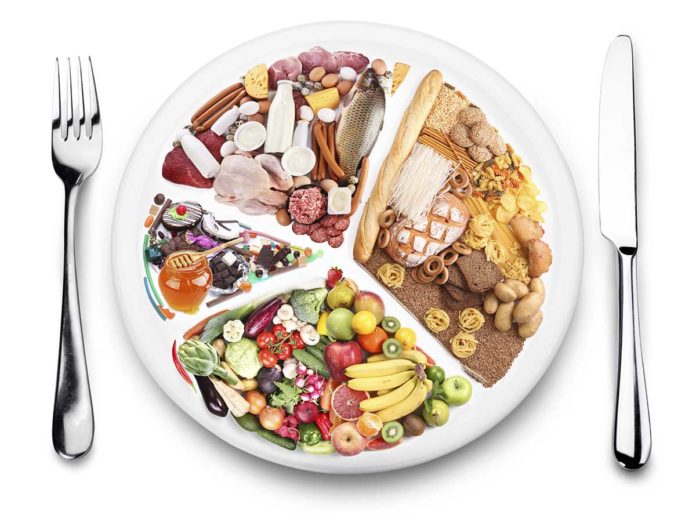Are you eating right?
Is your diet packed with required nutrients?
Does it have any role in your weight loss goals…?
The complex world of diet and nutrition is wrought with heavy questions that offer no one-size-fits-all answer. With diet fads changing as fast as fashion, it isn’t easy to keep a track of the new options, nor feasible to try all and measure up against the best.
But what if experts told you which foods to eat and which to avoid, taking your body’s metabolism into consideration? What if you learnt to identify the foods that have a direct say on your weight and those that help you stay upbeat…?
Going by the tried-and-tested routine, we present tips and guidelines from an expert nutritionist in the capital. Ruba al Shaikh of Nutrilife presents an overall view of the importance of diet and nutrition in reaching the desired health goals.
Nutrilife is a Nutritional Counseling and Catering Center, offering nutritional counselling and catering nutritionally balanced meals to children and adults, enabling them to conveniently lead healthier lives. Nutrilife dieticians determine individual nutritional requirements, while the chefs prepare personalised meals, and have it delivered to the doorstep.
Strike a Balance!
Reverse obesity with a lifestyle change, suggests Ruba Al Shaikh, Nutritionist and Director of Nutrilife, as she chalks out ways and means to go about realising the goals of a healthy lifestyle, in the following interview.
What exactly does nutrition refer to?
The term ‘nutrition’ refers to the process(es) by which humans, as well as animals, take in and use nutrients or food substances. The term itself does not differ for various age groups; however, nutrient requirements do differ across the lifespan as well as by gender and body composition. In general, children require a smaller amount of nutrients as compared to adults; men require greater amount of nutrients than their female counterparts. Body composition is also a determining factor, as individuals with a higher degree of muscle mass require more nutrients and calories.

What is the role played by diet and nutrition in overall health and wellness?
Diet and nutrition play a key role in maintaining optimal health and preventing non-communicable diseases. As a result of advancements in health care, the rates of communicable diseases (those caused by infectious agents) is generally on the decline. However, with socio-economic development and with advancements in technology, there is a general rise in non-communicable disease such as obesity, heart disease and hypertension – all of which are rooted in years of poor diets and sedentary lifestyles. Obesity is the culprit behind many of the health concerns seen today amongst both children and adults; it is preventable by practicing healthy eating habits and indulging moderately. At the end of the day, we recommend striking a balance!
When nutritionists say eat in moderation, what exactly are they implying?
Nutritionally, moderation refers to avoiding excess. This implies consuming the foods that you enjoy, which are in most cases high in either fat or sugar – or both, without going overboard. It’s worth noting though that moderation certainly does not imply deprivation! For example, if you enjoy consuming chocolates, moderation would mean that you consume one or two small pieces, rather than consume the entire bar. We do recommend that one consumes the foods that s/he enjoys regularly, as this prevents binge episodes or episodes of over-indulgence.
Is there any standard for the ideal quantity of food for different age groups?
In general, there is a recommended reference range of nutrients and calories by age and gender; however; these ranges are further adjusted in order to account for an individual’s body composition (fat to muscle ratio) and their level of physical activity. The higher the muscle mass and level of physical activity, the higher the requirements.
Is one’s diet solely responsible for weight gain?
Diet plays a significant role in weight gain; however, it is not solely responsible for it. Physical activity plays an important role in weight change, as do certain medical conditions and medications. Examples of this are individuals with thyroid disorders as well as those on corticosteroid use, who often see a direct impact on their weight.
How important is nutrition in the various diet fads?
We do not recommend following fad diets, since, as their name implies, they are usually unbalanced in nutrients and promote unhealthy, rapid weight loss. They often skip a food or food group or promote a severe caloric restriction, or sometimes even both. If you are provided with a diet plan that you are unable to follow for an extended period of time, or to adopt as a lifestyle, then you should not follow it. Temporary change only yields temporary results!
Can nutrition help combat obesity?
Poor nutrition is at the core of obesity! In order to fully combat obesity though, a general lifestyle change is recommended. This entails consuming an adequate amount and balance of nutrients, as well as leading a physically active life. Visiting a nutritionist or dietitian is the first step to determining the amount of calories and balance of nutrients one requires. The dietitian can also help suggest simple ways to increase physical activity throughout your day, and this does not always mean spending hours at a gym! At Nutrilife, we help our clients improve their eating habits and activity levels within their current lifestyle. For example, if one eats lunch out, we assist in making better food selections. To reiterate, yes nutrition can help combat obesity, but a lifestyle change is required to reverse this epidemic.


How serious is the overweight/obesity problem in Oman?
As in other gulf states, overweight and obesity is also a problem in Oman. As studies have reported, 30 percent of Omani adults are overweight. This is 1/3 of the population, which is quite alarming. This has come about due to socioeconomic development, sedentary lifestyles and poor dietary habits.
What are the nutrition dos and don’ts to follow to lose and maintain that weight?
Eating right isn’t that complicated, all it entails is eating an adequate amount of calories made up of the correct balance of nutrients. This means eating from all the following food groups:
- Carbohydrates: Bread, pasta, rice and potatoes
- Proteins: Meat, Fish, Chicken, Beans and eggs
- Fats: Avocadoes, Nuts, peanut butter
- Dairy: Milk, cheese, yoghurt
- Fruits
- Vegetables
A simple way to gauge this is to divide your plate as follows:
- Fill half your plate with fruit and vegetable
- ¼ with lean protein such as chicken breast, lean beef or fish
- ¼ with carbohydrates such as brown rice, brown pasta or potatoes.
- Try to accompany at least 2 of your main meals with a source of low fat dairy, such as cheese, yoghurt or milk.
Any general nutrition tips to help people cook/prepare healthy food…
- Improve your cooking method: bake, grill and boil foods more often and limit frying
- Use low fat dairy alternatives such as low fat milk and yoghurt
- Incorporate vegetables into your main meals as they promote satiety with minimal calories. If you are not a fan of salads, make soups instead!
- Fruits are a great source of fibre and vitamins, yet they do contain simple sugars. For this reason, we recommend that you aim to take in 2-3 fruits per day.


*Ruba, earned her Bachelor’s degree in the field of Human Nutrition and Dietetics from the American University of Beirut. She worked as a clinical dietician at the Royal Hospital in Muscat where she counselled paediatric patients, adults, and patients with chronic diseases. She was also a part of the Diabetes Management team to help educate individuals about diet and diabetes. As a member of the American Dietetic Association, Ruba has access to the latest scientific research in field of food and nutrition, which she aims to use to benefit the Omani community

